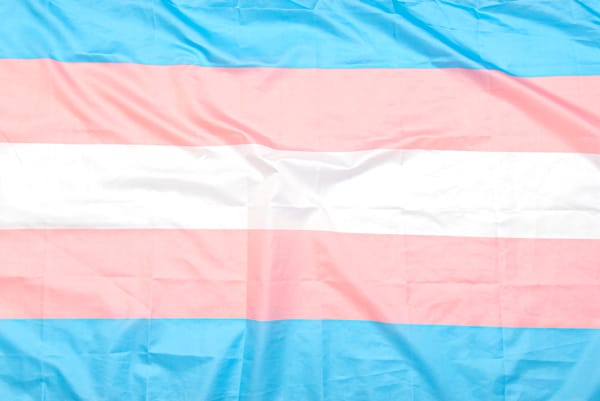Dealing with Discrimination and Gender Minority Stress

Transitioning can be an incredibly empowering and fulfilling experience, but it’s not without its challenges. As a transgender or gender non-conforming person, you may encounter discrimination and gender minority stress at different stages of your journey. Whether it’s from society, in the workplace, or even from people close to you, facing prejudice can take an emotional toll. The good news is that you don’t have to face it alone, and there are ways to build resilience, find support, and take care of your mental health.
Let’s take a closer look at the impact of discrimination and gender minority stress, how to cope with these challenges, and where to find the support and resources you need.
Understanding Discrimination and Gender Minority Stress
Discrimination is when you are treated unfairly because of your gender identity. It can show up in many forms: verbal abuse, physical violence, exclusion, unequal treatment in healthcare or at work, and the use of incorrect names or pronouns. Gender minority stress is a term that refers to the chronic stress and anxiety that LGBTQ+ individuals experience because of social stigma, discrimination, and exclusion.
It's important to acknowledge that these experiences can deeply affect your mental and emotional well-being. The emotional weight of being marginalized because of your gender identity can lead to stress, anxiety, depression, and other mental health challenges. Understanding these factors is a first step toward managing them.
The Impact of Gender Minority Stress
Gender minority stress can take a toll on your mental health and day-to-day life. Some common feelings and experiences associated with this type of stress include:
- Chronic anxiety or fear: Worrying about facing discrimination or being outed in various situations.
- Depression: Feeling down or hopeless due to the weight of societal rejection.
- Low self-esteem: Struggling to feel good about yourself due to external rejection or invalidation of your gender identity.
- Isolation: Feeling like you have to hide parts of yourself or that you don't belong.
- Post-traumatic stress: In extreme cases, trauma from past discriminatory experiences can affect your ability to feel safe and secure.
It's essential to remember that these experiences are not a reflection of your worth or identity. They are a result of societal factors that can be changed over time through advocacy, education, and support. But while we work to create a more inclusive world, it’s crucial to prioritize your mental and emotional health as you navigate these challenges.
Coping with Discrimination and Stress: Practical Tips
While discrimination is a reality for many, there are ways to cope and protect yourself emotionally. Here are some helpful strategies:
1. Build a Support System
Creating a network of supportive friends, family members, and allies can make a huge difference. When you have people around you who affirm your identity and stand up against discrimination, you’re better equipped to face challenges. Here’s how you can build your support system:
- Connect with other trans or gender non-conforming individuals. Local or online support groups, forums, and events can be a great way to find people who truly understand your experiences. These communities often provide a space for sharing advice, venting frustrations, and celebrating victories.
- Find allies. Allies are people who aren't part of the trans community but who support your rights and advocate for you. They can be instrumental in helping you navigate difficult situations and standing up for you when needed.
- Consider therapy or counseling. A therapist who is knowledgeable about gender issues and LGBTQ+ experiences can help you process your emotions and develop coping strategies for discrimination-related stress.
2. Learn to Set Boundaries
Boundaries are essential when dealing with people who may not be respectful or understanding of your identity. Setting clear limits can help you protect your emotional well-being:
- Assert your pronouns: Don’t hesitate to politely but firmly correct people who misgender you. Remind them of your preferred name and pronouns, and consider having a prepared response if this happens regularly.
- Protect your emotional energy: It's okay to walk away from situations that are too emotionally taxing. You don’t have to engage with people who are unwilling to treat you with respect.
- Know when to seek help: If you experience discrimination at work or in public spaces, it’s essential to know your rights and seek support when necessary.
3. Practice Self-Care
Self-care isn’t just about taking a break from work (though that can help!). It's about taking care of your emotional, physical, and mental health on a deep level:
- Create a daily routine: Establishing a routine that includes time for relaxation, reflection, and activities that make you happy can help combat stress. This could include exercise, meditation, journaling, or hobbies you love.
- Mindfulness techniques: Mindfulness practices like deep breathing, meditation, or yoga can help reduce stress and improve your emotional resilience. These practices can also help you stay grounded when faced with difficult situations.
- Allow yourself to grieve: It's natural to feel sadness, anger, or frustration when facing discrimination. Don’t suppress these emotions—acknowledge them and give yourself permission to process them.
4. Seek Professional Help
If you’re struggling with the emotional impact of discrimination and gender minority stress, seeking professional help can be an essential step in your healing process. Therapists, counselors, and mental health professionals who specialize in LGBTQ+ issues can help you:
- Process your emotions: A trained professional can help you navigate complex feelings of anger, sadness, or hopelessness.
- Develop coping skills: Therapy can teach you how to manage stress, anxiety, and depression in a healthy way.
- Build self-acceptance: Working with a counselor can help you develop a stronger sense of self-worth and confidence.
Look for professionals who specialize in gender-affirming care and are knowledgeable about the challenges the trans community faces. You can find a therapist through resources like:
Resources for Further Support
It’s essential to know that support is available, and you don’t have to go through these experiences alone. Here are some resources that can provide help:
- The Trevor Project – Offers 24/7 crisis counseling and support for LGBTQ+ youth.
- PFLAG – A national organization that offers support and education for LGBTQ+ people and their families.
- Transgender Equality – A resource from the National Center for Transgender Equality that provides information on your legal rights, healthcare, and other issues.
- GLAAD – Advocates for LGBTQ+ representation and helps fight discrimination in the media.



